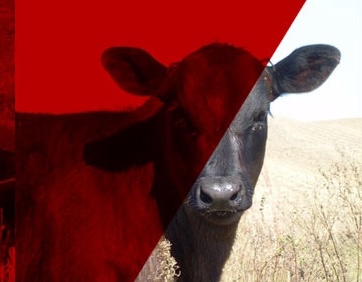Many of us that work with farm families hear stories like this: the son is home from college to start his career on the farm. He visits with his parents on a change during action or management. The son identifies a field to be converted to “no-till,” and while he goes into town for parts, his father starts disking the field. In cases like this, the son will feel like he has not been trusted to make decisions. Lack of trust among family members can be a huge issue for any family moving forward, especially if they are working on farm/ranch succession plans.
Rousseau et al. 1998, offer a more in-depth definition, based in part on accepting your own vulnerability when trusting someone: “trust is a positive psychological state comprising the intention to accept vulnerability based upon positive expectations of the intentions or behavior of another.” Lewicki et al. 1998, describe trust as compelling us to act based on our perceptions of another: “an individual’s belief in, and willingness to act on the basis of, the words, actions, and decisions of another.” These descriptions offer two important characteristics of trust. First, the level of trust one is willing to invest in a relationship relates to our perceptions and assumptions of how another person will act. And second, we accept a level of vulnerability when we choose to trust another.
Family relationships can carry over to the family business, while business relationships can, in turn, affect family relationships. This is amplified on the family farm or ranch, where family members work together in high-stress situations, far outside of the 8-5 workday.
Trust is not easily given and is even harder to earn back once broken. Understanding the factors that can affect trust in a relationship is a great place to begin to understand how to build, or rebuild, trust. Vaz lists seven barriers to trust in relationships:
Desire to Control - A situation where one person in a relationship attempts to control the actions, thoughts, or emotions of another. This results in a situation of unequal position or power.
Dishonesty - One or more individuals are hiding information, providing only half-truths, or are attempting to be purposefully misleading.
Self-centeredness - The focus is on self and one’s own needs, wants and desires.
Lack of openness - A situation in which one or more persons are not open and free in expressing their opinions, describing their position on issues, or relating information.
Communication - Required for trust to develop. Failure to communicate effectively leads to a failure of trust.
Empathy - Difficulties in relationships definitely happen. The failure to identify with the troubles experienced by the injured person and willingness to work together to address the problem leads to reduced trust.
Positive Feelings - Focusing on the negatives, becoming jealous of success, or allowing suspicious feelings to fester can all lead to a reduction of trust in others.
There are three common characteristics of families who can sustain a culture of trust:
Family members are reliable. They do what they say they will do. Mean what you say and say what you mean.
They demonstrate feelings of intimacy. They care about each other and they like being together.
They are honest with each other. They have open, direct communication — they are willing to speak and listen when difficult things need to be said.
Trust also goes together with respect. We are often more likely to lash out at those we are closest to, making it even more important to emphasize respect in our close relationships. However, we must also be willing to give our family members the benefit of the doubt. We all have bad days, and it is essential to be able to look past it when family members are experiencing one themselves.
Action or inaction can speak volumes. Beginning the process of building or rebuilding trust may be as simple as a handshake and an invitation to talk. The other person may want the same thing but is unsure about where to start or if anyone even cares. It takes someone to be the catalyst to begin the process, someone who can lead people to develop trust. The catalyst may even be someone not in the family business. Often, however, that someone is the mother in the family.
_________________________
Adapted from: Why is Trust Important in an Ag Legacy? Volume 5, Issue 3 October 2020, By Caleb Carter, consultant to the Department of Agricultural and Applied, Economics in the University of Wyoming College of Agriculture and Natural Resources
Interviews with the authors of BeefWatch newsletter articles become available throughout the month of publication and are accessible at https://go.unl.edu/podcast.
Topics covered:
Marketing & risk management, Marketing, budgets & management

